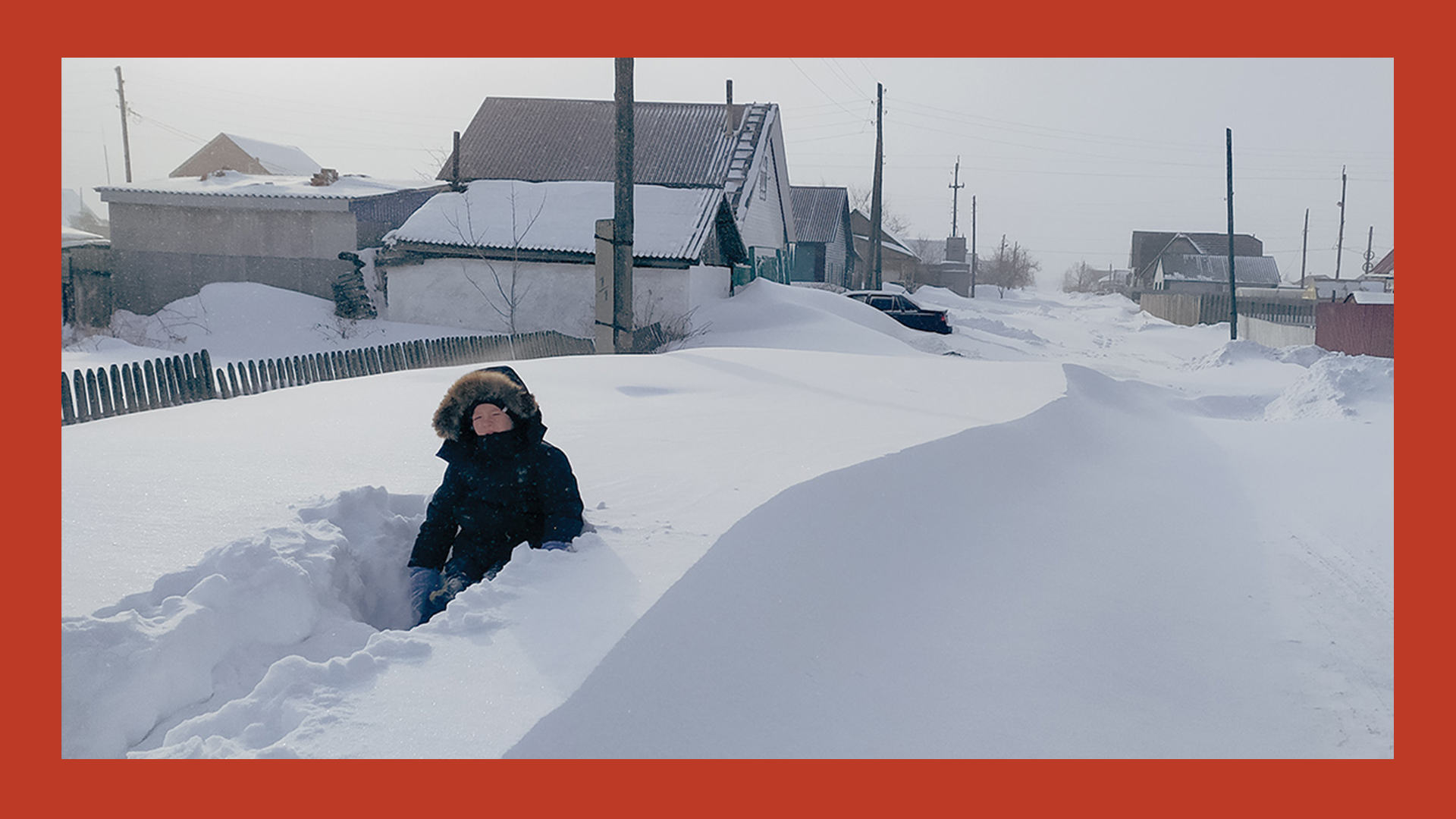Far from Kremlin leaders in Moscow and the frontlines of war in Ukraine, Mennonite Brethren and Baptists today farm tens of thousands of acres of land in Russia. They are using state-of-the-art machinery to do it, growing agribusinesses along with grain and livestock in a place with some of the coldest winters on earth: Western Siberia.
The economic progress among Siberia’s Protestant population is little noted but breathtaking. Thirty years ago, the residents of Apollonovka and Solntsevka, remote villages in the flat region west of the city of Omsk, lived in wooden cabins with outdoor toilets. Now, many reside in brick, ranch-style houses that would fit into many neighborhoods in North America. The Protestants had few private cars before the 1991 breakup of the Soviet Union. Today they drive luxury cars from Japan and China. Contact with the West, once prohibited, now happens round the clock. The farmers and business owners here use smartphones to keep in touch with relatives in Germany, Canada, and Paraguay.
Theirs is not an overnight success story. Baptist and Mennonite immigrants built their prowess in large-scale agriculture over generations, in a journey marked by perseverance and ingenuity, as well as setbacks. One ingredient, they say, is that economic success has remained embedded in church life—from before the Russian Revolution, through the Communist era, and into the current Russian Federation.
“We preach Christ crucified” was a verse ensconced behind the pulpits of many Soviet-era churches, says Alexander Scheiermann, bishop of the Evangelical Lutheran Church in the Urals, Siberia, and the Far East. According to him, the 1 Corinthians reference was intended not least of all as an admonition for preachers not to veer from their primary topic. The Siberians in the Omsk region today see adherence to that gospel message as essential to their success in business and in growing food.
 Photo courtesy of Rudolf Langeman
Photo courtesy of Rudolf LangemanAnd they do know how to feed people. At Apollonovka, a settlement founded by Mennonites from Ukraine in 1911, one grain operation farms 12,850 acres. At Medvezhe, 13 miles to the west, Willock Farm works more than 15,000 acres. The farm mainly produces wheat, plus other cereal crops and legumes.
“We have been able to supply people with bread and work. This has helped our congregation, for we have the practice in our church of paying the tithe. If business is good, then things are also good for our church,” said Jakob Dirksen, one of Apollonovka’s village directors.
As these farmers watched Soviet-era collective farms fail, they leaned into their heritage and a global network of like-minded farmers to improve operations, turning collectives into self-made cooperatives. A Canadian Mennonite farmer with Russian roots provided interest-free loans after visiting Apollonovka in 1997. That led to the construction of a feed mill. Next came a bakery that employs locals and makes food more abundant in a region lacking in transport.
Farm employees have learned to diversify along the way—becoming feed mill operators, butchers, beekeepers, bakers, veterinarians, auto mechanics, sawmill owners, carpenters, and painters. A younger generation has opened successful businesses in construction materials and truck sales.
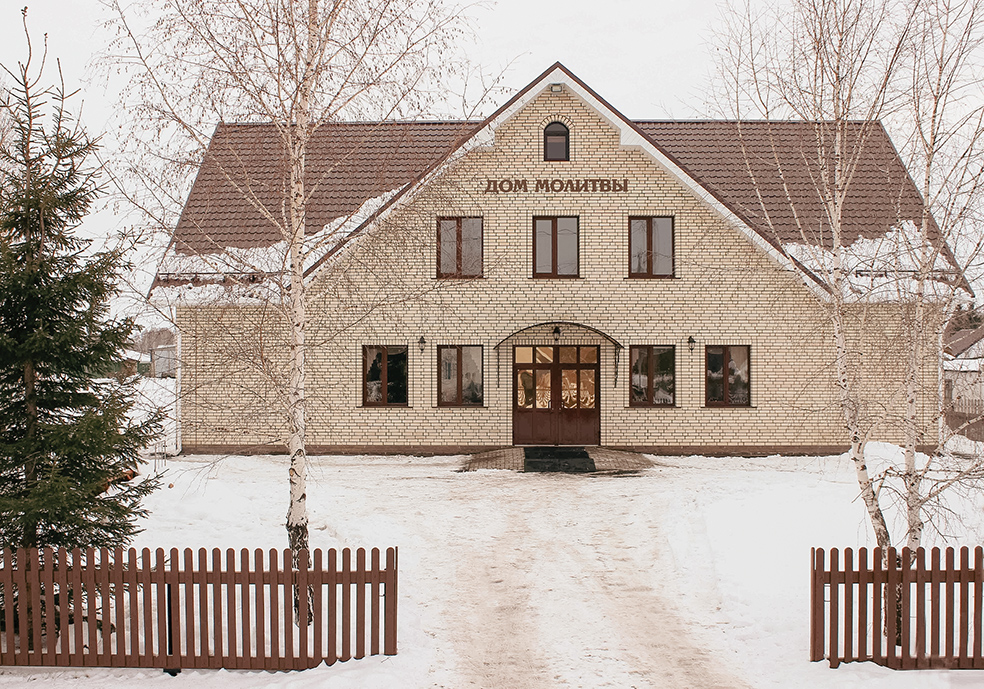 Photo courtesy of Rudolf Langeman
Photo courtesy of Rudolf Langeman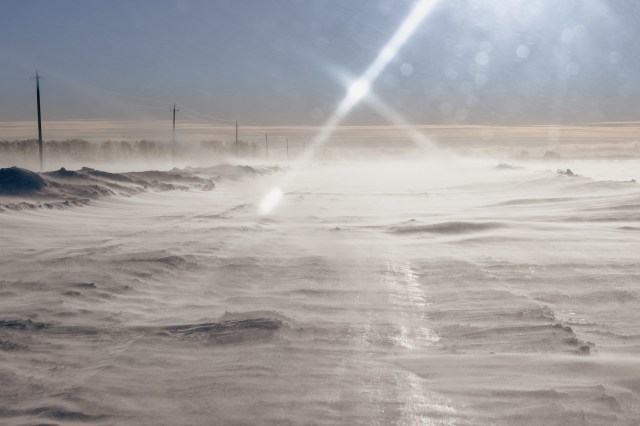 Photo courtesy of Rudolf Langeman
Photo courtesy of Rudolf Langeman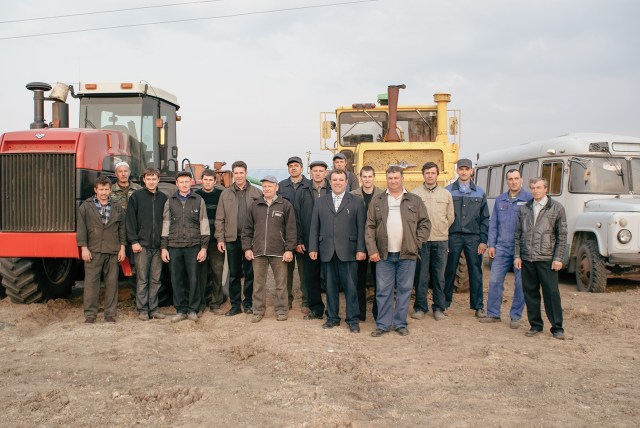 Photo courtesy of Rudolf Langeman
Photo courtesy of Rudolf LangemanWillock Farm launched a second enterprise called Sevmaster to produce farm machinery and supply its 50-plus employees with indoor work during the long winter months. Sevmaster, run out of a neighboring village, produces harrows, rollers, discs, and carts for hauling planters sometimes connected to aging machinery once imported from North America. (Willock once imported much of its equipment from North America. Now buyer has become supplier: China is beckoning for the Anabaptist-made implements.)
Mennonites arrived in the western reaches of the Russian empire in the late 1700s, driven by European persecution of Anabaptists and the quest for farmland. They began moving to Western Siberia in 1890, and by 1915 over 80,000 ethnic Germans lived in Siberia. The number of baptized Mennonite adults throughout Russia peaked at 120,000, near the onset of World War I.
The immigrants faced hostility during the war, followed by the Bolshevik revolution that ushered in Communism. By 1937, all Baptist and Mennonite pastors in the Omsk region had been “eliminated” and their churches shuttered, according to a report from Mennonite lay historian Peter Epp. Most elderly ethnic Germans still living today in Apollonovka and Solntsevka grew up without fathers or grandfathers.
When the Mennonites were allowed to restart church life after World War II, “there were only grandmothers around who still knew anything about our Mennonite past. But they were afraid to talk,” reported Alexander Weis, a now-deceased pastor among the Baptists in Slavgorod.
Somehow, a great awakening followed and churches grew, only to be followed by another new low in the 1990s when the breakup of the Soviet Union led to hardships in Russia’s outer enclaves and made emigration easier. Many of the German Russians moved back to Germany.
But large families remain the norm in the Omsk region, which borders Kazakhstan. Thirty years later, some of those who left for Europe have returned to what turns out to be opportunity in Siberia’s open spaces.
The church in Slavgorod lost more than a thousand members from the 1970s to 1990s, but attendance is now back up to 400. A Mennonite Brethren congregation at Solntsevka baptized 34 people in 2022 and now has 217 adult members meeting in a brand-new sanctuary. A congregation in Isilkul with 15 members at the breakup of the Soviet Union now has 130. In Apollonovka, the community of about 900 dedicated a larger church building in 2018 with 230 baptized members and more often in attendance.
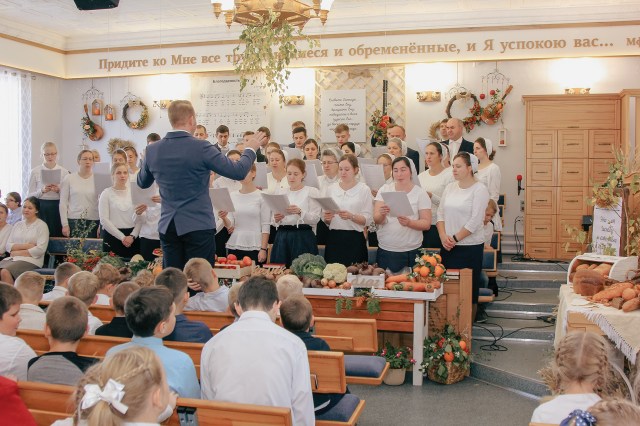 Photo courtesy of Rudolf Langeman
Photo courtesy of Rudolf LangemanWhile church regeneration is evident everywhere, luring people to and keeping them in Siberia is still a hard sell. Membership in the registered Baptist congregations in Omsk city dropped from 3,000 to 2,000 over the past two decades and has not recovered. Faith alone will not sustain communities without adequate incomes. That’s why new agribusinesses are so important.
Economic development also curries favor with the state. In Omsk, the Mennonite and Baptist congregations have never registered with the state, and their religious activities are essentially illegal. Their “houses of prayer,” which can seat hundreds of occupants, officially are private dwellings owned by individuals. “Improper” usage of private dwellings is becoming a government issue elsewhere in Russia, but not in the Omsk region.
Local authorities are fond of the evangelical entrepreneurs. Siberians, on average, receive more government subsidies than other Russians and can access cheap loans. The state provides subsidies for newborns and for the construction of new homes. Continuing economic success and high birth rates make these villages rare beacons of light in Russia, where nationwide birthrates have plummeted, and the Mennonites’ progress has attracted further state investment on the barren, forsaken plains of Western Siberia.
At the same time, the enterprises of Apollonovka have voluntarily taken on projects serving the common good. When a road between Apollonovka and Medvezhe was needed, Willock Farm trotted out its road grader and plowed a route through the steppes without waiting for official consent. Apollonovka had long suffered from seasonally high water. So volunteers heightened road surfaces, deepened ditches, and diverted the excess water into a swamp. Willock and other Mennonite and Baptist firms covered two-thirds of the cost.
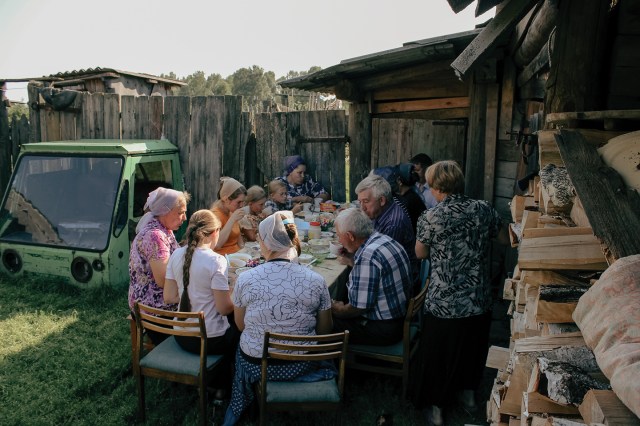 Photo courtesy of Rudolf Langeman
Photo courtesy of Rudolf LangemanAny success and favor, though, the evangelicals attribute to God’s blessing. They believe God has blessed them also for displaying loyalty to the Bible’s commandments and fealty to the ways of their forebears. Preaching Christ crucified, they say, has kept them off the barricades. Despite pressure, most avoid political questions, disputes, and protests.
They also believe success and survival depend on balancing obedience to the Word and compromise with earthly powers.
Compromises have meant adopting Russian as their mother tongue. In Apollonovka, only children’s classes are held in their ancestral Low German. Adults speak Russian and services are held in Russian. Most adults know Low German and may use it among themselves, but mastery of Russian allows them to thrive in the business world and to carry on mission work. Three hundred miles north of Apollonovka, that means working among local drug addicts and ex-prisoners in the heart of Siberia. Over the years several dozens of Mennonite families from Omsk have resettled in the north to hold services and work among those who live there.
“We do not remain on location because life is better or easier here. We have made our choice and want to share in the fate of the peoples of Russia. All of us here are a part of Russia,” said Peter Epp, the lay pastor and historian who lives in Isilkul.
No one forgets when their forefathers refused to compromise.
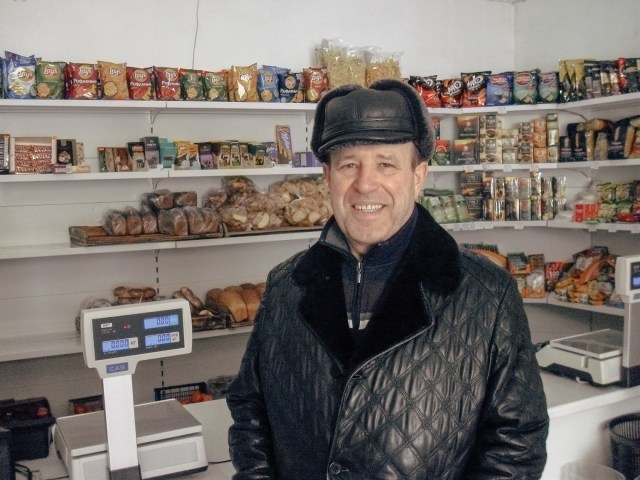 Photo courtesy of Rudolf Langeman
Photo courtesy of Rudolf Langeman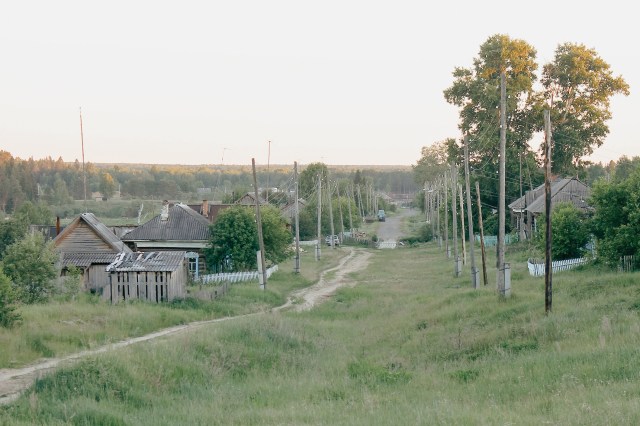 Photo courtesy of Rudolf Langeman
Photo courtesy of Rudolf LangemanIn the 1950s and ‘60s, Nikita Khrushchev’s government launched programs to force atheism on the children of believers. Fathers in the Omsk region went to prison. The head of the Mennonite Brethren, Nikolay Dikman, served two sentences of hard labor in the rugged coal mines of arctic Vorkuta. Now 95 years old, he is venerated not only for opposing communism, but for protecting the church and its families.
Others were imprisoned too. Many died under hard labor, including the grandfather of Jakob Dirksen, one of the two owners of Willock Farm, who died in 1985.
For these faithful, church life—with its two-hour services and long meals and fellowship—is a kind of reunion, a celebration of what Mennonites and Baptists have survived. Choir festivals and feasts are a payoff for enduring the hardships of living in a rural setting with a harsh climate and harsh realities.
These believers know their success is unique to their rural context and heritage, and they also have never expected the state to supply them with happiness. They expect that to come instead from God and their church community.
William E. Yoder is an American writer living in Kaliningrad, Russia.

